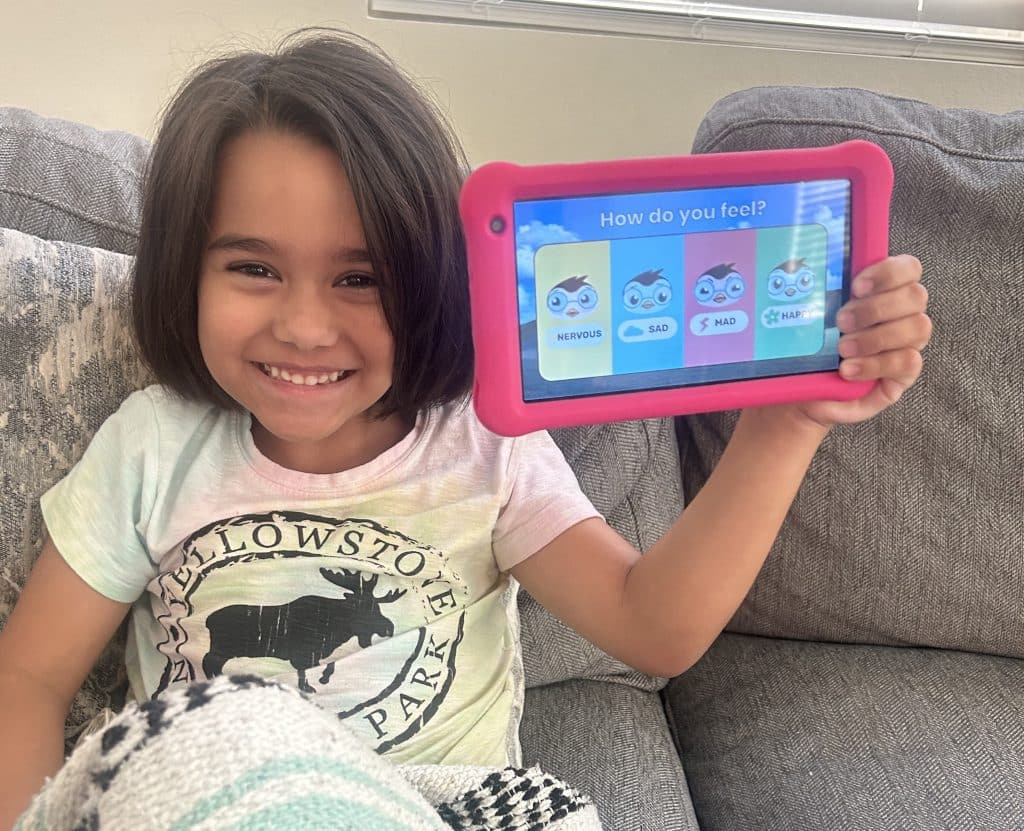Thrills, joys, tears, and more – welcome to the rollercoaster that is “emotional development in 3 year olds.” As parents of neurodivergent kids, we want to ensure we have a deeper understanding of their emotional growth. Worry not, you’ve come to the right place! This guide will walk you through the key aspects of a 3-year-old’s emotional development, highlight milestones, and offer essential insights on how to support your child’s growth effectively. Time to put your detective hat on and let’s start our investigation!
Table of Contents
Emotional Milestones: What to Expect at Age 3
Let’s get a bird’s eye view of what emotional milestones look like for 3-year-olds. Although every child is unique and neurodivergent kids may achieve these milestones differently, there are some common markers to watch for:
- Recognizing and naming their emotions
- Showing empathy for others
- Developing self-awareness
- Expressing emotions appropriately
- Managing frustration and anger
Remember, emotional development is a gradual journey. If your child hasn’t crossed a particular milestone yet, it’s okay! Your consistent support and understanding will undoubtedly help them get there in time.

Key Factors Influencing Emotional Development
To better navigate the terrain of emotional development in 3 year olds, it’s important to understand the factors influencing this growth:
- Environment: A safe and nurturing environment is the foundation of a child’s emotional growth. Stability, like maintaining a predictable daily routine, builds trust and security.
- Communication: Encourage open dialogue about feelings and emotions with your child. Acknowledge their feelings, listen attentively, and support them through challenges.
Moreover, we need to consider other external influences that play a vital role in your child’s emotional development:
- Social Interaction: Social experiences are essential for kids in learning empathy and emotional reactions. Arrange play dates or ensure family gatherings include your neurodivergent child.
- Parental Modeling: We can’t overstate the importance of leading by example. Healthy emotional expression and coping strategies demonstrated by parents set a positive benchmark for your child.
Emotional Development Challenges for Neurodivergent Kids
When talking about emotional development in 3 year olds, it’s crucial to recognize the unique challenges neurodivergent kids with thinking and learning differences may face. Some common obstacles are:
- Difficulty recognizing or understanding their own emotions
- Challenges in expressing emotions appropriately
- Struggles with emotional self-regulation
- Increased sensitivity to sensory stimuli
- Heightened anxiety or stress levels
By being aware of these potential hurdles, you’ll be better equipped to create a supportive and inclusive environment that caters to your child’s unique needs.

Read more: Social Emotional Development Milestones
Strategies to Foster Emotional Development in 3 Year Olds
Nurturing Your Child’s Emotional Growth One Step at a Time
Now that we’ve covered the basics, let’s dive into proven strategies that will help you support your 3-year-old’s emotional development:
- Practice emotional labeling: Teach your child to identify and name their emotions. Use real-life situations to explain feelings, such as “You seem sad because we can’t go to the park today.”
- Validate their emotions: Always acknowledge your child’s feelings and display empathy, ensuring they feel heard and understood.
To provide further emotional guidance, try the following:
- Encourage emotional expression: Allow your child to express their feelings safely and creatively, through avenues like drawing, storytelling, or imaginative play.
- Talk about solutions: When faced with a problem, brainstorm possible solutions with your child and encourage them to choose a course of action.
- Create a calm space: Designate a quiet spot in your home where your child can retreat when they’re overwhelmed or upset. This safe place will aid in learning self-regulation techniques.
Monitoring Progress and Seeking Help
It’s important to keep a close watch on your child’s emotional development progress. Take note of any milestones achieved or areas where extra support may be necessary. Don’t hesitate to consult a pediatrician, psychologist, or occupational therapist with experience in emotional development in 3-year-olds if you have concerns about your child’s progress. These professionals can offer valuable guidance and support for both you and your child.
Goally | Kid’s Tablet for Building Emotional Regulation Skills
Is your child struggling with understanding and managing their emotions? Goally’s skill building kid’s tablet includes a Mood Tuner app that teaches emotional regulation skills in a fun and interactive way!

The Mood Tuner app encourages kids to look inwards and identify their feelings, helping them understand what’s going on inside. Once they’ve recognized their emotions, they can choose from a variety of exercises designed to help them self-regulate and find their balance.
Try Goally as an app for as low as $15. Or, opt for our dedicated skill-building tablet (which ONLY shows Goally apps) for $149, ensuring your child stays focused on their emotional growth journey.
The Unique Path of Every Child
Lastly, always remember that emotional development in 3 year olds is a unique and individual experience, particularly for neurodivergent kids. Embrace your child’s emotional growth at their pace, and celebrate every victory, big or small. With a nurturing environment, validation of their feelings, and employing effective strategies, you’re setting the stage for your 3-year-old’s healthy emotional development. You’re doing a great job, so keep up the good work!
This post was originally published on 05/27/2023. It was updated on 08/14/2023.

Goally
We help parents teach their kids life skills, like doing bedtime and morning independently. Backed by science, we incorporate evidence-based practices and expert-informed designs in all of our apps and content.





